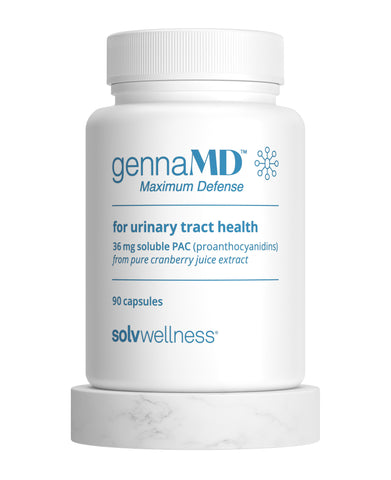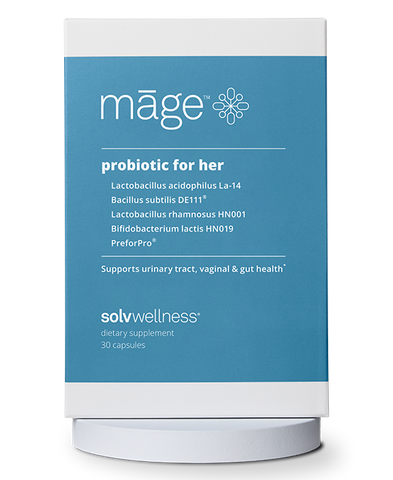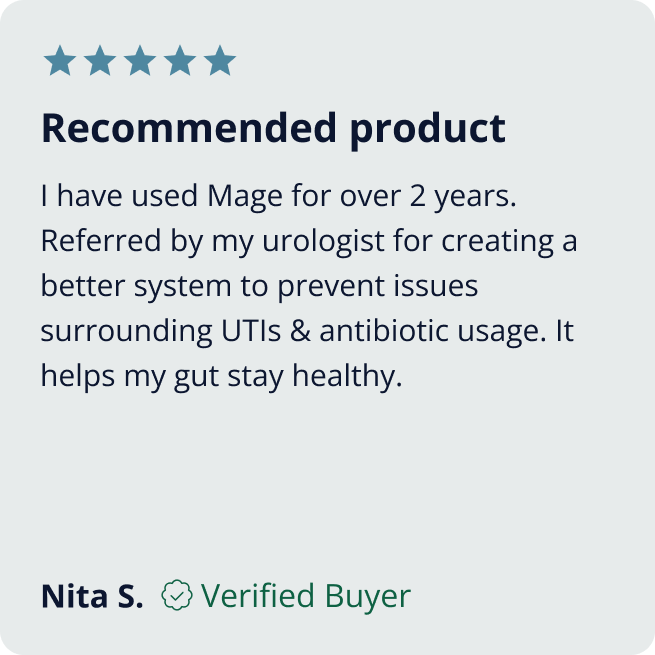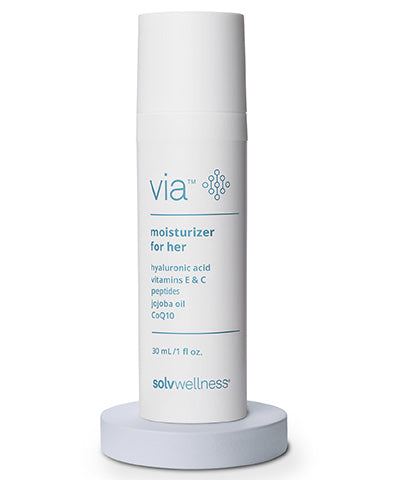Vaginal dryness. Itching. Painful sex. Frequent UTIs. Constantly needing to pee.
These aren't random inconveniences—they're common signs of Genitourinary Syndrome of Menopause (GSM), a condition that affects up to 87% of menopausal women.
And for the first time ever, the American Urological Association (AUA) has released comprehensive guidelines to help healthcare providers better recognize and treat GSM. The guidelines were developed in partnership with Society of Urodynamics, Female Pelvic Medicine & Urogenital Reconstruction (SUFU) and American Urogynecologic Society (AUGS) and are endorsed by The International Society for the Study of Women’s Sexual Health (ISSWSH), The Sexual Medicine Society of North America (SMSNA) and The Menopause Society (TMS), cementing their position within the professional medical community as a framework for women’s urological and sexual health.
This marks a turning point: clearer clinical guidance means more women can receive the care and relief they need without shame, stigma, or confusion.
So, whether you’re in menopause or supporting someone who is, here’s what you need to know.
GSM is a group of symptoms caused by declining estrogen during and after menopause. Estrogen helps keep vaginal and urinary tissues healthy. When hormone levels drop, these tissues thin, dry out, and lose elasticity.
- Vaginal dryness, burning, or irritation
- Pain or discomfort during sex
- Frequent or urgent need to urinate
- Recurrent urinary tract infections (UTIs)
- Loss of vaginal fullness
- Decreased libido due to pain or discomfort
These symptoms aren't "just part of aging" and something to "put up with." They can impact your confidence, relationships, and quality of life, but the good news is, they are treatable.
For too long, GSM has been underdiagnosed and undertreated. Many women may feel embarrassed to talk about it or are dismissed when they do. The new AUA guidelines change that by validating something crucial: GSM deserves attention, and there are safe, effective treatment options available.
Here are the top takeaways experts now recommend:
1. Low-Dose Vaginal Estrogen Is Safe and Effective
Vaginal estrogen, available as creams, tablets, or rings, is recommended as the first-line treatment for GSM symptoms like dryness, irritation, and pain during sex.
The guidelines confirm that low-dose vaginal estrogen does not increase the risk of breast or uterine cancer, which helps dispel long-standing fears, myths and misinterpretations of data.
2. Non-Hormonal Options Are Available
For women who prefer not to use hormones, daily vaginal moisturizers, especially ones that feature hyaluronic acid like Via by Solv Wellness, can help manage mild symptoms. These can be part of a regular care routine to maintain comfort.
3. Hormonal and Non-Hormonal Treatments Can Be Used Together
This isn't an either-or decision. Experts emphasize that hormonal and non-hormonal therapies complement each other. Vaginal moisturizers can be safely used alongside vaginal estrogen to enhance overall comfort and moisture.
4. Alternatives Like DHEA and Ospemifene Exist
If estrogen isn't an option due to personal or medical reasons, alternatives like vaginal DHEA or ospemifene (an oral medication) can help ease GSM symptoms and restore comfort.
5. Be Cautious with Laser Treatments
Vaginal lasers and energy-based treatments are being marketed for GSM, but the AUA states that there's not enough scientific evidence to support them as first-line treatments. These may be considered only after other options have been tried or discussed thoroughly with a provider.
6. GSM Requires Long-Term Care
GSM isn't a "one-and-done" issue. Just like other aspects of menopause, your needs may shift over time. These new guidelines emphasize that ongoing, individualized care is essential as symptoms may progress as you continue aging.
These new guidelines empower you to seek evidence-based care without hesitation as a new standard has been set for healthcare providers. You deserve effective treatments that can make a difference. Here's what you can do:
- Speak up: Bring up vaginal or urinary discomfort or issues at your next appointment. These aren't minor issues, they're medical concerns with real solutions that your doctor should take seriously.
- Ask about low-dose vaginal estrogen: It's safe, effective, and now strongly recommended as a first step for GSM.
- Use moisturizers and lubricants regularly: These are easy, accessible options to help improve daily comfort.
- Be cautious of expensive or unproven treatments: Many expensive or "trendy" products and procedures lack solid scientific backing. Ask your provider what's proven.
- If you're a breast cancer survivor: Talk to your provider about both hormonal and non-hormonal approaches tailored to your needs. You too have options and don't need to suffer.
- Stay informed: GSM care is lifelong. The more you understand your body, the better choice you'll make to navigate this stage of life.
GSM is real and it's common, but that doesn't mean you have to live with it. It's treatable and with these new AUA guidelines, more healthcare providers and informed women like yourself are equipped to recognize and treat GSM as the important health issue it is.
Relief is possible, and your health and comfort are always worth it.
Explore more evidence-based support and guidance at Menopause Made Clear—your trusted resource for thriving in midlife and beyond.










